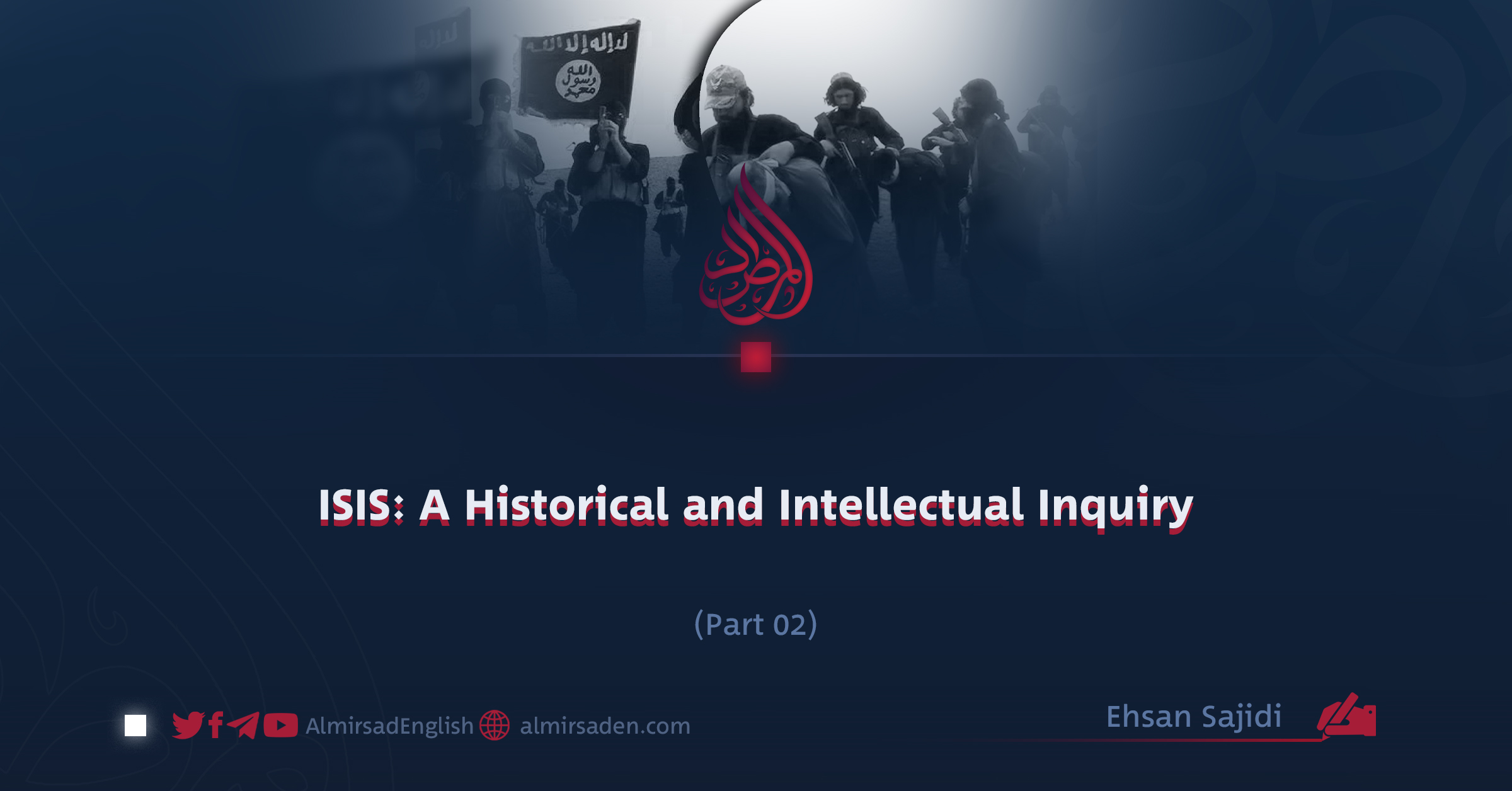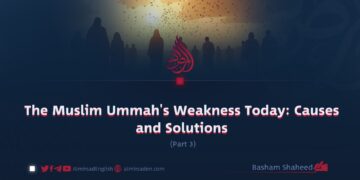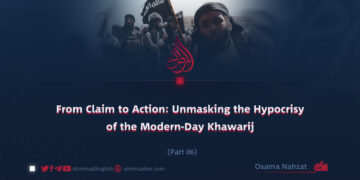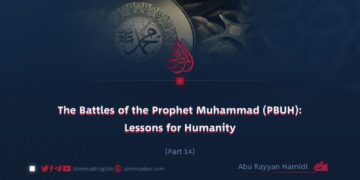Part 2
Ehsan Sajadi
A Comparative Analysis of ISIS and the Khawarij: On Takfir, Violence, and Deviations from Islam
ISIS, a violent and takfiri movement, represents a modern reincarnation of the extremist ideology of the Khawarij, the first deviant sect to emerge in Islamic history during the first Hijri century. Both groups, by distorting Islamic principles and misusing religious texts, particularly through their doctrines of takfir (excommunication of fellow Muslims) and justification of sectarian violence, have projected a corrupted image of Islam. This inquiry compares the ideological foundations of ISIS and the Khawarij across three critical domains: takfirism, violence, and deviation from authentic Islamic teachings.
1. Takfirism: Excommunicating the Ummah
In the aftermath of the Battle of Siffin, the Khawarij raised the slogan “La hukma illa lillah” (“No judgment but Allah’s”) and declared not only the fourth Caliph, Ali ibn Abi Talib (RA), a disbeliever, but also excommunicated all who disagreed with them. They labeled any Muslim guilty of a major sin as an infidel, a doctrine known as the excommunication of grave sinners. This ideological extremism laid the groundwork for religiously motivated violence.
ISIS revived this doctrine in the modern era, excommunicating Muslims, both Sunni and Shi’a, who refused to adopt its radical views. It declared their blood lawful and considered their extermination a religious obligation. Like the Khawarij, ISIS weaponized takfir to legitimize the elimination of its opponents, violating the unity, sanctity, and dignity of the Muslim community.
2. Violence: Justifying Atrocities in the Name of Religion
The Khawarij were the first sect to institutionalize violence against fellow Muslims. Their brutality extended beyond the battlefield to the murder of women, children, and non-combatants. ISIS replicated this pattern, carrying out horrific acts such as the beheading of prisoners, the enslavement of women, and the mass execution of civilians. These were not isolated incidents but part of a systematic campaign, justified through distorted interpretations of Qur’anic verses on jihad.
Islam provides clear and strict guidelines for warfare, emphasizing justice, restraint, and the protection of innocents. The Prophet Muhammad (PBUH) explicitly forbade treachery, mutilation, and the killing of children. Despite this, ISIS flagrantly violated all ethical and legal constraints, using the noble concept of jihad as a cover for terrorism and bloodshed. Their actions stand in direct contradiction to the foundational principles of Islamic warfare and human dignity.
3. Deviation from Islam: Betrayal of Core Principles
Although the Khawarij claimed to adhere to the Qur’an, their actions revealed a profound departure from Islamic values such as mercy, wisdom, and tolerance. The Prophet (PBUH) described them as those who “exit the religion as swiftly as an arrow leaves the bow.” Similarly, ISIS claimed to implement Sharia, yet committed some of the gravest violations of Islamic ethics, including the murder of scholars, destruction of sacred sites, and distortion of core teachings.
This deviation was not simply a matter of misinterpretation, but a deliberate betrayal of Islam. ISIS lacked both scholarly credibility and jurisprudential authority. It was composed of unqualified and fanatical individuals who arrogated to themselves the right to issue verdicts and declare jihad.
A Critical Examination of ISIS’s Theological and Jurisprudential Foundations
1. ISIS’s Distortion of Jihad and Its Exploitation to Justify Terrorism
ISIS, by grossly misrepresenting the sacred concept of jihad, has not only betrayed the principles of Islam but has also projected a distorted, violent, and inhumane image of one of the faith’s most noble obligations. In Islamic tradition, jihad is rooted in the pursuit of justice, the defense of the oppressed, and the protection of human dignity and rights. However, this extremist group has weaponized jihad as a justification for terrorism, indiscriminate killings, and the spread of fear. This deliberate manipulation closely resembles the deviant methods of the Khawarij, the first sect in Islamic history to rebel against mainstream Muslim authority and jurisprudence. In both ideology and practice, ISIS represents a modern reincarnation of this historical deviation.
Authentic Islamic jurisprudence imposes clear and strict conditions on jihad, including moral and legal boundaries that govern its application. These principles are not merely advisory but foundational. Islam unambiguously commands: “Do not commit excess, do not betray, do not mutilate, and do not kill children.” Yet ISIS has consistently violated these directives, targeting civilians, women, and children with brutal violence, and shamelessly publicizing these atrocities as acts of religious merit. Such actions are not only un-Islamic but constitute a flagrant breach of every ethical standard upheld by Islamic law.
Across all schools of thought, prominent Islamic jurists have affirmed that jihad is permissible only under specific and narrowly defined circumstances, most importantly for the defense of Islamic lands or under the leadership of a legitimate and just ruler. Imam Abu Hanifa (RA), among many others, emphasized that jihad is valid only in defense of Muslim lands and must be sanctioned by a rightful authority. In stark contrast, ISIS has assumed for itself the authority to declare and execute jihad anywhere in the world, without legitimate leadership or accountability. This self-authorized violence directly parallels the ideology of the Khawarij, who considered themselves above the caliphs and deemed any opposition as apostasy deserving of death.
In attempting to justify their crimes, ISIS often cites Quranic verses revealed in the context of specific battles in the early Islamic era. However, renowned Islamic scholars have repeatedly emphasized that such verses must be interpreted within their historical and jurisprudential context and in light of the broader ethical framework of Islam. The killing of innocents, the destruction of sacred spaces, and the sowing of terror among communities, hallmark traits of ISIS, are unequivocally condemned by all reputable Islamic traditions. Even during legitimate warfare, Islam prohibits harming civilians, destroying public infrastructure, or even mistreating animals.
ISIS’s claim to enforce Sharia is a false pretense. In reality, the group has committed some of the most egregious betrayals of Islamic values in modern history. Its members are neither qualified scholars nor competent jurists. Rather, they are an ignorant and rigid faction that has arrogantly assumed religious authority after acquiring limited and superficial knowledge. Their self-issued fatwas lack any grounding in authentic scholarship. Senior scholars of Ahl al-Sunnah and grand muftis from across the Muslim world have unanimously declared that ISIS has no connection to Islam and that its actions represent nothing but criminal behavior cloaked in religious rhetoric.
Conclusion: ISIS and the Legacy of Deviance
ISIS, like the Khawarij before it, is a manifestation of religious extremism that weaponizes theology in pursuit of political power. Both movements have inflicted immeasurable harm, not only to the image of Islam but to the lives of countless innocent people. By distorting sacred texts, undermining legitimate authority, and glorifying violence, they have become enemies of the very faith they claim to defend.
Muslims around the world must remain vigilant against such distortions. True Islam is a religion of mercy, justice, and wisdom. It rejects indiscriminate violence, condemns sectarianism, and upholds the sanctity of human life.



















































